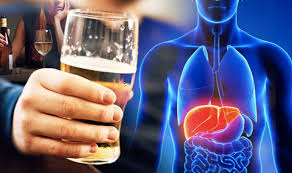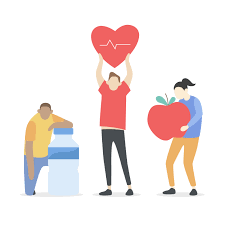
Effects of Alcohol on Mind and Body | Tips for Responsible Drinking
Welcome to an insightful exploration of the effects of alcohol on your mind and body. In this engaging discussion, we’ll uncover the various impacts of alcohol consumption, from its immediate effects to its long-term consequences. Join us as we delve into the complex world of alcohol and gain valuable insights into responsible drinking practices.

Raise your glass and let’s talk about alcohol! It’s a beverage that has been part of our social fabric for centuries, often associated with celebrations and relaxation. While moderate alcohol consumption can be enjoyed responsibly, it’s essential to be aware of the potential effects it can have on our mind and body.
Alcohol has been an integral part of human culture for centuries, associated with celebrations, socializing, and relaxation. However, it is crucial to understand that consumption comes with potential risks and consequences. Let’s embark on a sobering journey to raise awareness about the importance of responsible drinking.
The Buzz: Short-Term Effects of Alcohol:
When it enters your bloodstream, it quickly begins to exert its effects. Here are some common short-term effects of alcohol consumption:
a) Impaired Judgment: Alcohol can impair your decision-making abilities and lead to poor judgment. This can result in engaging in risky behaviors, such as drunk driving or unsafe sexual encounters.
b) Slurred Speech and Altered Coordination: It affects the central nervous system, leading to slurred speech, unsteady movements, and a decline in coordination. These effects increase the risk of accidents and falls.
c) Memory Impairment: Alcohol can disrupt the formation of new memories, leading to gaps in memory or blackouts. Excessive drinking can result in complete amnesia of events that occurred during intoxication.
d) Emotional and Behavioral Changes: It can alter your mood and behavior. It may initially induce feelings of relaxation and euphoria, but excessive consumption can lead to aggression, irritability, and emotional instability.
e) Euphoria and Relaxation: Alcohol can initially induce feelings of euphoria and relaxation due to its impact on the brain’s neurotransmitters. It can temporarily alleviate stress and enhance mood.
f) Dehydration and Hangovers: It is a diuretic, meaning it increases urine production and can lead to dehydration. This can contribute to the unpleasant symptoms of a hangover, including headache, nausea, and fatigue.
Beyond the Buzz: Long-Term Effects:

While a single night of heavy drinking can result in short-term consequences, long-term abuse can have serious implications for your overall health and well-being:
a) Liver Damage: One of the most well-known consequences of long-term alcohol abuse is liver damage. Excessive consumption can lead to conditions such as fatty liver, alcoholic hepatitis, and cirrhosis, which can be life-threatening.
b) Increased Risk of Chronic Diseases: Alcohol abuse is linked to an increased risk of various chronic diseases, including cardiovascular diseases, certain types of cancer, and pancreatitis. Prolonged abuse weakens the immune system, making the body more susceptible to infections.
c) Mental Health Disorders: Alcohol abuse can contribute to the development of mental health disorders such as depression, anxiety, and substance use disorders. It can exacerbate existing mental health conditions and hinder effective treatment.
d) Nutritional Deficiencies: Alcohol interferes with the body’s ability to absorb and utilize essential nutrients, leading to nutritional deficiencies. These deficiencies can have wide-ranging effects on physical and mental health, including weakened immune function and cognitive impairments.
e) Cardiovascular Complications: Chronic alcohol abuse can increase the risk of high blood pressure, irregular heart rhythms, and damage to the heart muscle. These factors contribute to an increased likelihood of heart disease and stroke.
Responsible Drinking: Key Takeaways and Tips:

Understanding the effects of alcohol is crucial for making informed choices and practicing responsible drinking. Here are some key takeaways and tips to promote responsible consumption:
a) Moderation is Key: Enjoy alcohol in moderation. Follow guidelines for moderate drinking, which generally recommend no more than one drink per day for women and two drinks per day for men.
b) Know Your Limits: Be aware of your tolerance and understand how it affects you individually. Pace your drinking, and avoid “binge” drinking, which is defined as consuming large amounts within a short period. Listen to your body and know when it’s time to stop drinking.
c) Plan Ahead: If you know you’ll be drinking, plan ahead for a safe and sober way to get home. Designate a sober driver, use public transportation, or utilize rideshare services to avoid driving under the influence.
d) Take Breaks: Incorporate alcohol-free days into your routine. This allows your body to rest, recharge, and maintain a healthy relationship with alcohol.
e) Seek Support: If you or someone you know is struggling with alcohol abuse or dependency, it’s essential to seek support. Reach out to healthcare professionals, support groups, or helplines dedicated to alcohol addiction for guidance and assistance.
f) Educate Others: Share your knowledge about the effects of alcohol with friends, family, and community members. By raising awareness and promoting responsible drinking practices, you can contribute to a culture of informed choices and healthier lifestyles.
g) Stay Hydrated: Counter the dehydrating effects of alcohol by drinking water alongside alcoholic beverages. Staying hydrated can help mitigate some of the negative impacts on your body.

While alcohol is deeply ingrained in our social fabric, it is crucial to recognize the potential risks and consequences that come with its consumption. Understanding the short-term and long-term effects of alcohol on the mind and body empowers individuals to make responsible choices and prioritize their health and well-being. By practicing moderation, knowing our limits, and seeking support when needed, we can foster a safer and healthier relationship with alcohol. Let us raise awareness and encourage responsible drinking to ensure a vibrant and fulfilling life, free from the detrimental effects of alcohol abuse.
Disclaimer: The information provided in this content is for general informational purposes only. It is not intended as medical or healthcare advice, diagnosis, or treatment. Always seek the advice of a qualified healthcare professional with any questions you may have regarding a medical condition or healthcare decisions.
















